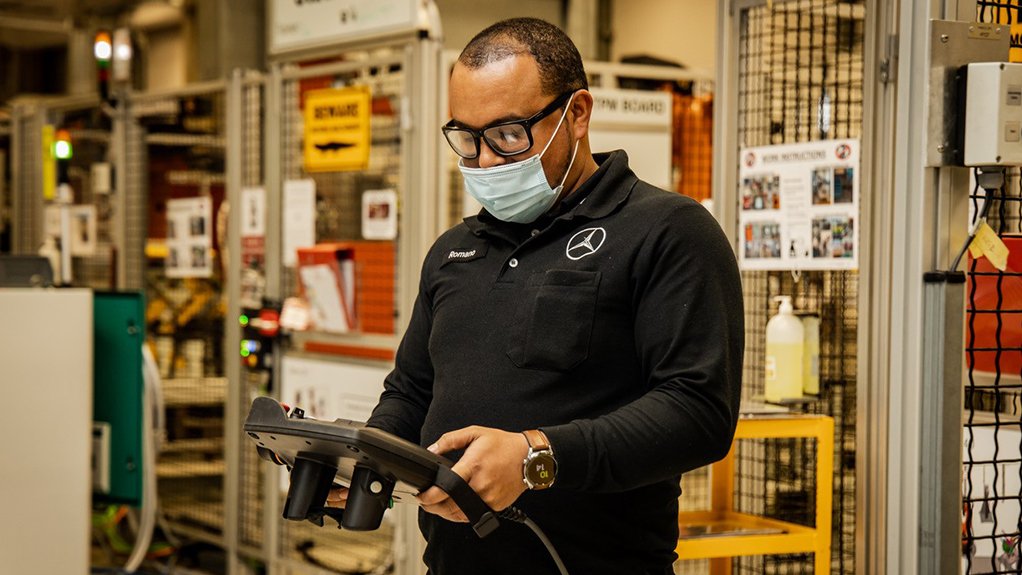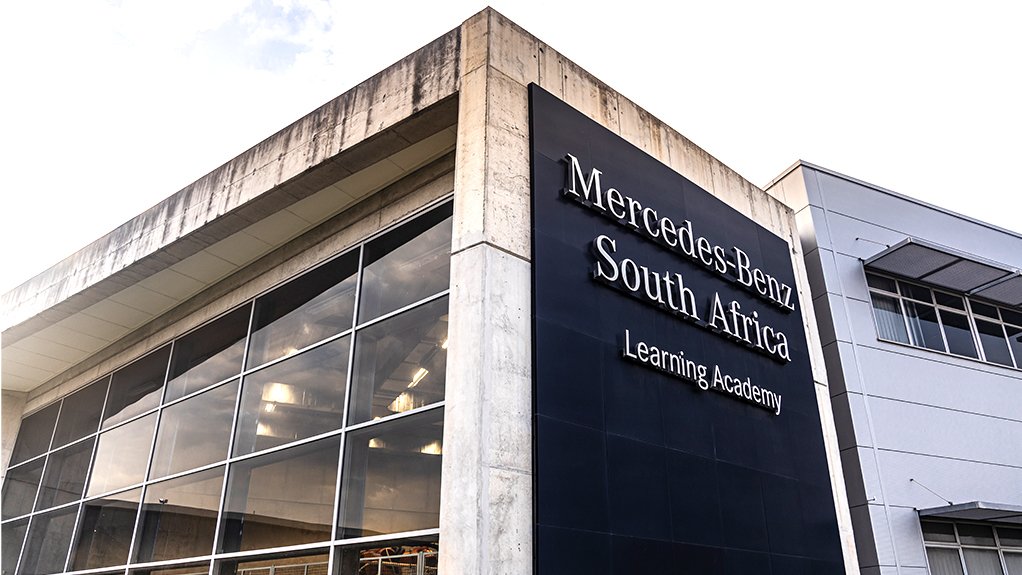Automotive manufacturer Mercedes-Benz South Africa (MBSA) continues to develop skills for the future through its learning academy, which prioritises the development of skills in the automotive industry to not only service in-house business needs but also the wider automotive industry.
The Mercedes-Benz Learning Academy, in East London, was established primarily as a vehicle to help MBSA develop the skills that are needed within the company, adds MBSA human resources executive director Abey Kgotle.
The academy celebrated its fortieth anniversary last year.
For MBSA, the academy is an important pillar of the business and a significant milestone, says Kgotle.
He explains that the academy enabled MBSA to provide the skills that MBSA needs at present and in future. The academy has been accredited by all the applicable accreditation bodies, with reaccreditation awarded last year.
This was a significant achievement for the company because in the past, it relied heavily on the required training being provided outside of the academy, as employees had to travel abroad to receive such training.
The academy boasts a team of highly skilled facilitators that Kgotle says is “incomparable to any other training globally”. The academy has also introduced the reference cell to a suite of programmes already available at the academy.
The reference cell technology training is a well-structured suite of several programmes, which provide skills and an opportunity for the supply base to access these skills.
It also enables MBSA, through several initiatives operational among the youth, to involve young people who ordinarily would not have been able to access job opportunities.
The academy ensures that in-demand skills are provided in-house as well as assists in providing a pipeline of skills for the rest of the industry. Such skills development is crucial, especially given South Africa’s high unemployment rate.
Focusing on the Future
Kgotle adds that artisan training, in particular, has been one of the areas that has been neglected in South Africa.
“We have missed an opportunity as a country to ensure that we are able to promote skills, such as artisanal skills, and that we are able to provide opportunities for young people to be trained as artisans, and that's a gap that we fill through the academy,” he elaborates.
The academy has ensured that it has a firmly established artisan development programme, in addition to its other programmes.
The academy provides shopfloor skills training, providing young people with skills to enable them to access work opportunities when available within MBSA’s operations and within the supply base.
Kgotle explains that over the past several years MBSA has begun preparations for the next phase of the transformation of the automotive industry, particularly the growing trend towards the electrification of automotive and hybrid vehicles.
The academy has focused on building capacity in terms of skills which the academy is “looking to scale up in the next few years”, which will start this year.
Such skills are already in demand, as MBSA is already building hybrid cars.
Kgotle explains that, for MBSA, it is important to ensure it prepares for the future requirements of the company, rather than waiting for when such skills or solutions are required.
“We make our choices based on what we know we need today from a skills point of view and what we believe we will need in future. Because of our appreciation of what we will need now and in future, we want to ensure that the academy is set up well to meet those needs.”
An example of the academy’s forethought was its skills preparation for the launch of Mercedes Benz’ newest C-Class cars last year, as well as the cars’ introduction into the production line.
The biggest task over the past few years and leading into 2021 has been to complete the programme of preparing its staff for the new C-Class, he says.
The academy completed this task successfully, and aims to build on that in 2022 as it is considering all the other requirements the business may have in terms of skills and ensuring that those requirements are met.
Kgotle explains that, apart from meeting the business requirements of MBSA in terms of skills training, the Mercedes Benz Learning Academy also aims to meet the needs of its trainees and future trainees, as it can provide skills that can assist its trainees with their personal development and goals.
The academy provides trainees with opportunities that enable them to “get their foot in the door” and facilitate opportunities for growth from that point onwards.
“The future of our nation rests heavily on the ability and opportunities that institutions, such as the academy, avail to young people because our future depends on enabling our young people to acquire the skills that they need and, hopefully, those are the skills that meet the needs of the economy,” he concludes.
Edited by: Zandile Mavuso
Creamer Media Senior Deputy Editor: Features
EMAIL THIS ARTICLE SAVE THIS ARTICLE
ARTICLE ENQUIRY
To subscribe email subscriptions@creamermedia.co.za or click here
To advertise email advertising@creamermedia.co.za or click here















